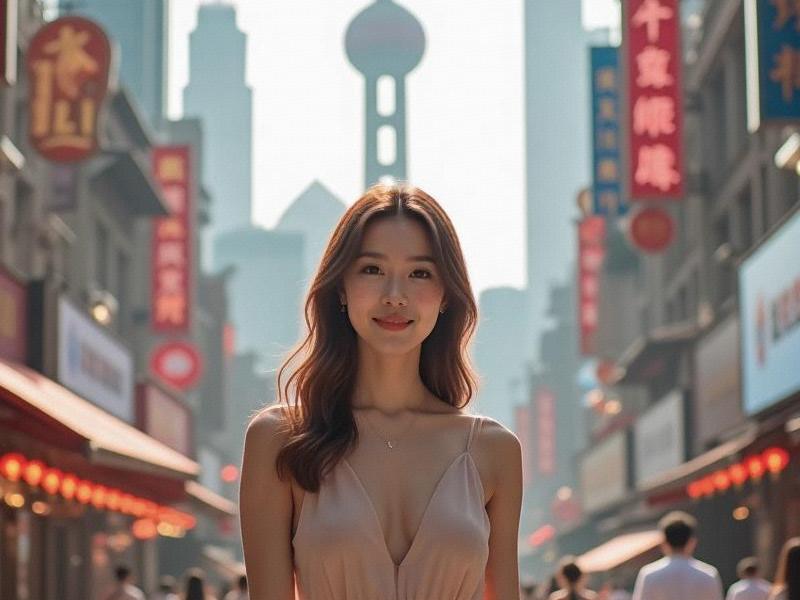Neon Renaissance: How Shanghai's Entertainment Clubs Are Reinventing Nightlife in Post-Pandemic China
⏱ 2025-06-06 00:45 🔖 上海龙凤419
📢0℃

The discreet bronze doors of "Celestial Palace" part silently as facial recognition confirms our reservation at Shanghai's most exclusive new entertainment complex. Inside, a scene from science fiction unfolds: robotic bartenders mix precision cocktails while augmented reality projections transform private rooms into anything from a Tang Dynasty palace to a Mars colony. This is Shanghai's nightlife in 2025 - where ancient hospitality traditions meet futuristic indulgence.
The New Golden Age of Entertainment
Shanghai's club scene has emerged from pandemic restrictions with remarkable resilience. Industry revenue reached ¥48.7 billion in 2024, according to municipal commerce bureau data, with high-end venues leading the recovery. "The market has bifurcated," observes nightlife consultant James Peng. "Mass-market KTVs struggle while luxury complexes like 'Myst' and 'First Cabin' see 30% annual growth."
These elite establishments have redefined entertainment spaces:
- "Infinity Club" features floating VIP pods suspended from a 20-meter ceiling
- "Sonic Temple" offers soundwave massage chairs synced to DJ beats
上海花千坊爱上海 - "Nebula" employs AI sommeliers that curate liquor flights based on biometric scans
Technology as the Ultimate Concierge
The most revolutionary changes occur behind the scenes. At "Elysium," an underground members-only club, blockchain technology verifies patrons' assets before granting access to its ¥1 million minimum-spend rooms. "We've eliminated paperwork while enhancing security," explains manager Vivian Tao, demonstrating their NFT membership system.
Traditional KTV hasn't been left behind. The new "Sing! Universe" chain features:
- Holographic backup dancers that adapt to singers' movements
爱上海419 - Real-time voice auto-tuning with 50+ celebrity presets
- Smart tables that reorder drinks when glasses near empty
The Economics of Exclusivity
Shanghai's entertainment economy reveals fascinating social shifts. Membership fees at top venues now average ¥250,000 annually, with the "Dragon Tier" at "Imperial Club" requiring ¥2 million upfront. Yet demand grows steadily from China's new wealthy class.
"These aren't just party spaces but networking ecosystems," explains financial analyst Li Wei. He notes how deals increasingly happen in soundproofed "bubble rooms" equipped with document scanners and e-signature pads rather than traditional boardrooms.
爱上海
Cultural Preservation Through Innovation
Facing government calls for "healthy entertainment," clubs have creatively incorporated cultural elements:
- "Opera" features Peking opera performances with digital backdrops
- "Scholar's Den" offers private rooms with calligraphy sets and antique reproductions
- "Tea House 2.0" blends traditional tea ceremonies with mixology
As dawn breaks over the Huangpu River, Shanghai's entertainment palaces begin their daily metamorphosis from temples of excess into architectural art pieces. The city's nightlife continues to evolve - not by abandoning its roots, but by reimagining them for a new generation of global citizens.
Shanghai's Pan-Yangtze Synergy: Engineering a New Urban Civilization【长三角新格局】2025上海大都市圈融合发展白皮书Shanghai's Green Revolution: How China's Megacity is Leading the Sustainable Urban FutureShanghai's She-Economy: How the City's Women Are Leading China's Business RevolutionShanghai's Journey to Becoming a Global Innovation HubShanghai's Nightlife Renaissance: How Premium Clubs Are Redefining Urban EntertainmentShanghai's Techno-Cultural Tapestry: Weaving Blockchain, AI, and Imperial LegacyThe Evolution of Shanghai's Nightlife: How Entertainment Venues Are Redefining Urban LeisureThe Velvet Rope Economy: Inside Shanghai's Exclusive Nightlife RenaissanceNeon Renaissance: Shanghai's High-End Club Culture in the Post-Pandemic Era
海派烟火眉:上海美女的市井诗行与精神注脚《霓虹深处:南京东路百年商业街的进化论》《百乐门到元宇宙:上海娱乐会所进化论》霓虹与檀香:上海高端会所三十年文化流变"四段式模板
7. 历史参考:前两篇分别以"感官革命"和"时空折叠"为切入点,本次需创新视角
8. 时效元素:当前为2025年,可融入AI、元宇宙等现代科技元素
9. 价值导向:展现独立、智慧的当代上海女性形象,规避物化倾向
以下是符合要求的深度特稿:《梧桐树下的方程式:95后女科学家与旗袍实验室的双城记》《石库门密码:上海里弄建筑的时空折叠》《石库门里的时光标本》《梧桐树下的城市镜像》梧桐区镜像:上海女性的空间叙事与身份建构
空间修辞,身体政治,时尚语法,记忆拓扑,社群算法

